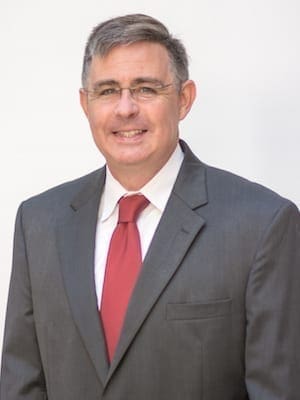When I did my doctoral studies on Rwanda, the driving question I wanted to answer was, “How could a group of people do this to one another?”
I wanted to know how there could be so much violence, even neighbor killing neighbor. I was hoping to discover one key factor that would perhaps rise above the others.
If that could be learned, perhaps future genocides in Africa and around the world could be prevented.
But the more I studied, the more I saw the way that a variety of factors came together to spark the genocide: historical tension, institutional support for the categorization and identification of citizens based on vague tribal differences, divisive ideologies and practices, economic hardship and incendiary language, just to name a few.
As I have reflected on the tragedy in Dallas on July 7, I couldn’t help but think of Rwanda.
While we are not approaching the atrocity of genocide, many people are wondering, “How could this have happened?” and “How have we come to this?”
Five police officers in Dallas are now deceased, killed during an otherwise peaceful protest rally over the shooting deaths of two African-American males by police in Minnesota and Louisiana.
As in Rwanda, what got us here is the confluence of many factors.
There is the mounting tension between law enforcement and the African-American community. There is a history of racism and present-day racial tension that cannot be ignored. There is a sense that the justice system is not fairly administered.
There is the reality of segregation not by law but by choice, where people opt to live and work in communities which are most like them, choices that trickle into schools, churches and other community spaces.
There is the problem of sniper rifles and assault weapons in the wrong hands and in the wrong places.
With all of these factors at play, the unimaginable has become reality, and perhaps we should not be so surprised.
The question becomes, “What can we do?”
We often make excuses for why we can’t make more of a cultural impact and stem the tide of tension and violence, believing that our country’s problems are bigger than what we are able to tackle.
But I believe that the church has all it needs to make a key difference in bringing greater justice and healing to our society. I believe that churches need to work on multiple fronts.
We have the capacity to create ongoing opportunities for dialogue between citizens and civil servants, work in justice-focused advocacy regarding the penal system, and call people to consider their life choices given the challenges our society is facing.
Ministries of reconciliation and bridge-building across racial lines must become essential, not optional.
Every church needs to be in active relationship with a sister congregation different from them, or preferably in organizations where many congregations can serve together, pray together and listen to one another.
Churches must become diverse. We have to become again the New Testament church where barriers are broken and people come together.
The tired excuses for why some people go to this church, and why some go to that church, and how we all have preferences and areas of mission, and how we usually reach others like us – these excuses are completely blasphemous against the work of the Holy Spirit.
The reality is that things could get much worse, and likely will, if people of faith don’t change their approach toward these challenges and get active. The time for making excuses is over.
 Brent McDougal is senior pastor of Cliff Temple Baptist Church in Dallas, Texas. A version of this article first appeared on Cliff Temple’s blog and is used with permission. You can follow him on Twitter @BrentMcDougal.
Brent McDougal is senior pastor of Cliff Temple Baptist Church in Dallas, Texas. A version of this article first appeared on Cliff Temple’s blog and is used with permission. You can follow him on Twitter @BrentMcDougal.
Brent McDougal is senior pastor of First Baptist Church in Knoxville, Tennessee.

